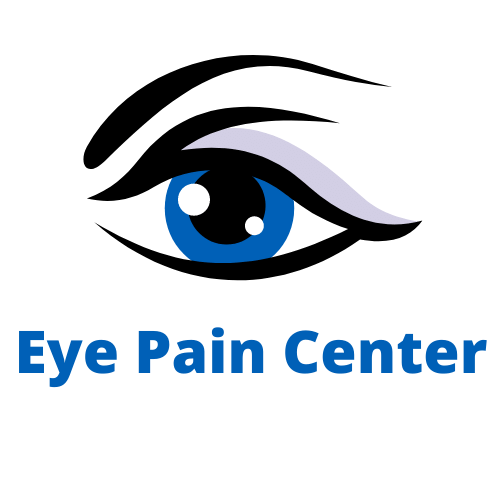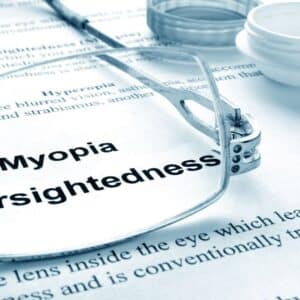Symptoms of Macular Degeneration
Macular degeneration is an eye disease that causes damage to the macula, the central part of the retina responsible for sharp, central vision. The symptoms of macular degeneration can vary depending on the stage and type of the disease. Some common symptoms of macular degeneration include:
- Blurred vision: A common symptom of macular degeneration is blurred vision, making it difficult to read or recognize faces.
- Distorted vision: In some cases, macular degeneration can cause distorted vision, making straight lines appear wavy or crooked.
- Dark or empty spots: Macular degeneration can also cause dark or empty spots in the central vision.
- Difficulty seeing in low light: People with macular degeneration may have difficulty seeing in low light or situations with high contrast, such as reading black text on a white page.
- Color changes: Some people with macular degeneration may experience changes in color perception, with colors appearing less vivid or bright.
- Difficulty adapting to changes in light: Macular degeneration can also make it difficult to adapt to changes in light, such as going from a bright room to a dark room.
It’s important to note that many of these symptoms can also be caused by other eye conditions, so seeing an eye doctor for a proper diagnosis is essential.
Risk of Driving With Macular Degeneration
Driving with macular degeneration can be risky as it can affect a person’s ability to see details, especially in the central field of vision. This can make it difficult to see traffic signals, pedestrians, or other vehicles on the road. In some cases, driving with advanced macular degeneration may even be illegal.
Here are some factors that can affect a person’s ability to drive with macular degeneration:
- The severity of the condition: People with advanced macular degeneration may have significant visual impairment, making driving unsafe.
- Type of macular degeneration: People with wet macular degeneration may experience sudden vision loss, making driving dangerous.
- Distance vision: Macular degeneration can affect the central field of vision, vital for reading road signs and recognizing hazards in the distance.
- Glare sensitivity: People with macular degeneration may be more sensitive to glare from headlights, streetlights, or the sun, making it difficult to see clearly.
- Reaction time: Macular degeneration can affect a person’s reaction time, making it more difficult to respond to sudden changes on the road.
If you have macular degeneration, talking to your eye doctor about your ability to drive safely is essential. They may recommend visual aids, such as telescopic lenses or bioptic glasses, to help improve your driving vision. Sometimes, your eye doctor may recommend that you stop driving altogether.
Get Regular Eye Exams and Follow Your Treatment Plan
Regular eye exams and following your treatment plan are essential for managing macular degeneration, an eye condition that can cause central vision loss. Here’s why:
- Early detection: Regular eye exams can help detect macular degeneration in its early stages when it may not yet cause noticeable symptoms. Early detection can allow for prompt treatment, which may slow the progression of the disease and preserve vision.
- Monitoring of progression: If you have macular degeneration, regular eye exams allow your eye doctor to monitor the progression of the disease over time. This can help detect changes in your vision and adjust your treatment plan.
- Treatment options: There are several treatment options available for macular degeneration, including medications, injections, laser therapy, and photodynamic therapy. Your eye doctor can recommend the best treatment plan for your specific case, and regular check-ups can ensure that the treatment is working effectively.
- Lifestyle changes: Besides medical treatments, several lifestyle changes can help manage macular degeneration, such as eating a healthy diet of antioxidants and wearing sunglasses to protect your eyes from UV rays. Your eye doctor can guide these lifestyle changes and monitor your progress.
- Support: Managing macular degeneration can be challenging, both emotionally and practically. Regular visits with your eye doctor can allow you to discuss your concerns and receive emotional support.
Regular eye exams and following your treatment plan are crucial for managing macular degeneration and preserving your vision. Be sure to follow your eye doctor’s recommendations and communicate any changes in your vision or symptoms you experience.
Adjust Driving Habits to Suit Low Vision Conditions.
If you have macular degeneration, an eye condition that can cause central vision loss, adjusting your driving habits is vital to ensure your safety and the safety of others on the road. Here are some tips for adjusting your driving habits:
- Increase the following distance: Leave more space between your vehicle and the vehicle in front of you to provide additional reaction time.
- Avoid busy roads: Choose less busy roads or avoid driving during peak traffic times to reduce the risk of accidents.
- Use assistive devices: Use devices such as bioptic lenses or telescopic glasses to help improve your vision while driving.
- Avoid driving in adverse weather conditions: Adverse weather conditions can make driving even more challenging for people with macular degeneration.
- Avoid driving at night: Nighttime driving can be complicated for people with macular degeneration. If possible, avoid driving at night.
- Plan: Plan your route ahead of time and use GPS to help guide you.
- Communicate with others: Let family members and friends know about your macular degeneration and any difficulties you may have while driving.
It’s important to remember that driving with macular degeneration can be risky, and it’s essential to prioritize your safety and the safety of others on the road. If you find driving too difficult or unsafe, consider alternative transportation options or work with your eye doctor to find assistive devices to help you maintain your independence.
Make Modifications to Your Car to Improve Safety
Modifying your car can improve your driving safety if you have macular degeneration. Here are some modifications to consider:
- Large mirrors: Installing larger mirrors can increase your field of vision, allowing you to see more of what’s around you.
- Brighter headlights: Brighter headlights can help you see better at night and in low-light conditions.
- Anti-glare features: Anti-glare features such as tinted windows, sun visors, and gloves on your glasses can help reduce glare and improve visibility.
- Voice-activated controls: Voice-activated controls for your car’s features, such as the radio or climate control, can help you keep your eyes on the road.
- Adaptive equipment: Adaptive equipment such as hand controls, pedal extenders, and steering wheel knobs can help you operate the car more efficiently and safely.
- Seat modifications: Seat modifications such as lumbar support and seat cushions can improve your comfort and reduce driving fatigue.
- Automatic transmission: An automatic transmission can reduce the number of tasks you need to perform while driving, such as shifting gears, allowing you to focus on the road.
It’s vital to work with a professional specializing in vehicle modifications for people with disabilities to ensure that the modifications are appropriate for your needs and installed correctly. These modifications can help you maintain independence and safety while driving with macular degeneration.
Get Help From a Professional Driver Rehabilitation Specialist
If you have macular degeneration, working with a professional driver rehabilitation specialist can help you learn new skills and techniques for driving safely with low vision. Here are some ways a driver rehabilitation specialist can help:
- Assess your driving abilities: A driver rehabilitation specialist can assess your visual acuity, visual fields, and reaction time to determine your driving abilities.
- Training and education: A driver rehabilitation specialist can provide training and education on adaptive equipment, assistive technology, and driving techniques to help you drive safely with macular degeneration.
- Recommend modifications to your vehicle: A driver rehabilitation specialist can recommend modifications, such as larger mirrors or hand controls, to improve your safety while driving.
- Support and guidance: A driver rehabilitation specialist can provide ongoing support and guidance as you adjust to driving with low vision.
Working with a driver rehabilitation specialist with experience working with people with low vision and understanding the unique challenges associated with macular degeneration is essential. They can help you maintain your independence and safety while driving and may also provide information about alternative transportation options if driving is no longer an option.
Use Adaptive Technology to Enhance Visibility.
Adaptive technology can benefit people with macular degeneration, an eye condition that can cause central vision loss. Here are some examples of adaptive technology that can enhance visibility:
- Magnifying devices: Handheld or stand magnifiers can help magnify printed materials such as books, newspapers, and menus.
- Telescopes: Telescopes can be used to see objects at a distance, such as street signs or other vehicles, while driving.
- Closed-circuit television (CCTV): CCTV systems use a camera and a monitor to magnify and display printed materials, photos, or objects in real time.
- Computer software: Some software programs can help you enlarge the text or images on your computer screen.
- Screen readers: Screen reader software can read the text aloud on your computer screen, making it easier to access information without straining your eyes.
- Voice-activated assistants: Voice-activated assistants such as Siri or Alexa can help you access information or control devices without looking at a screen.
- Smartphone apps: Many apps can help with magnification, text-to-speech, or navigation.
Working with an eye care professional or assistive technology specialist is essential to determine which adaptive technology is right for you and how to use it effectively. With the right technology, you can enhance visibility and maintain independence despite macular degeneration challenges.
Address Other Conditions That May Affect Your Ability To Drive Safely.
Here are some examples of conditions that may impact your ability to drive safely and what you can do about them:
- Hearing loss: If you have hearing loss, it can be difficult to hear sirens or other warning sounds while driving. Consider using hearing aids or other assistive devices to improve your hearing.
- Cognitive impairment: Conditions such as dementia or Alzheimer’s disease can impact your ability to make decisions or respond quickly while driving. If you have a cognitive impairment, work with your doctor to develop a plan for when it is no longer safe for you to drive.
- Medications: Some medications can cause drowsiness or affect your reaction time, making driving more difficult. Talk to your doctor or pharmacist about the potential side effects of your medications and how they may impact your driving.
- Sleep disorders: Sleep disorders like sleep apnea can cause drowsiness and fatigue while driving. If you have a sleep disorder, work with your doctor to develop a treatment plan.
- Physical limitations: Physical limitations such as arthritis or limited range of motion can make it difficult to operate a vehicle. Consider using adaptive equipment such as hand controls or pedal extenders to make driving easier and more comfortable.
By addressing other conditions that may impact your ability to drive safely, you can help ensure that you can drive safely with macular degeneration. Working with your healthcare team to develop a plan that considers all your health conditions and limitations is essential.






